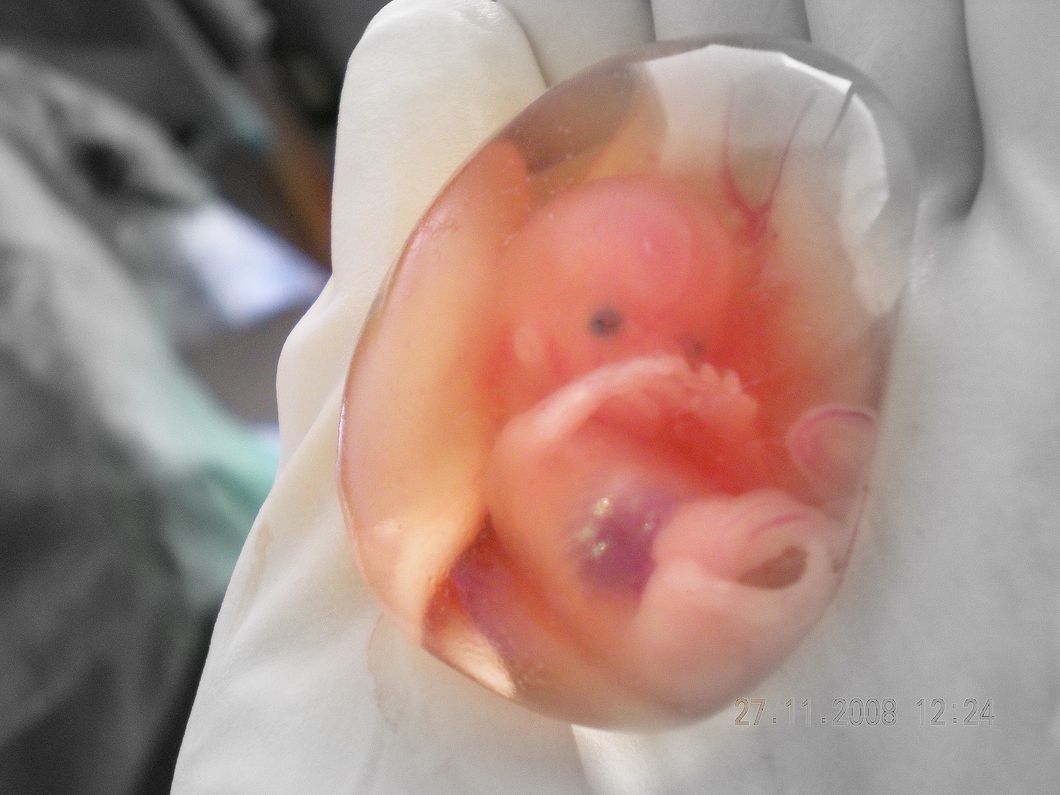I was searching today on the main Odyssey homepage using the word "abortion" to see what pieces had been written on the topic. Even though I did not find many that actually offered a defense of abortion or a critique of pro-life arguments, the ones I did discover had certain valuable nuggets of truth but left me with a glaring impression. I am honestly curious as to whether most undergrad students in secular schools are aware of more sophisticated pro-choice authors, such as "A Defense of Abortion" by David Boonin or "Abortion and Infanticide" by Michael Tooley, as well as pro-life critics, including "The Ethics of Abortion" by Christopher Kaczor and "Defending Life" by Francis Beckwith – or if these students' knowledge doesn't surpass what they have heard from their classrooms or on social media.
I am not here today to defend the position that abortion is immoral, but I will attempt to set the record straight on what is not at stake in this issue. So here we go.
First, abortion is not an issue of science vs. religion. It is sometimes claimed that opposition to abortion can only come from a faith-based perspective but not from a "scientific" one. One possible reason given is that a religiously motivated opposition to abortion is primarily based on a commitment to a sacred text and nothing more. It basically amounts to the idea that a Christian, Jew, or Muslim can only find their "support" for being opposed to abortion because that's what their sacred texts teach. On the other hand, we're told, those who hold to "science" will support abortion rights and have good reason to because that's where "reason" is. What does a pro-choice advocate have? Reason. What does the pro-lifer have? Faith.
This is misguided for two reasons. One, science cannot tell us whether we should value the unborn over pigs. The claim that a creature is valuable because it can feel pain or pleasure (sentient) might have some scientific basis, but it is not a purely scientific inference. It is both a metaphysical and ethical conclusion that one draws. The pro-choice advocate wants to draw a line between the unborn and newborn and say we can protect the newborn but not the unborn, despite the fact that both are members of the human species. What makes the newborn valuable enough for a right to life but not the unborn? Science will not do all the work.
Second, this is really a debate over different ways of understanding what a human is. You can define a human primarily in reference to his or her mental states (consciousness, self-awareness, rationality, relationality, etc.) or to having a certain kind of nature. Pro-lifers typically – though not always – will appeal to the latter. But this is nothing religious. It is something that could be easily recognized by an atheist.
The last thing I want to draw on here is an issue of inconsistency. It is not uncommon for someone to defend the right to an abortion and to land-blast a pro-life advocate for "imposing" his or her values on others while simultaneously saying that it's wrong to impose one's moral views on others. I am talking about ethical relativism. In one sense, this says that each person defines what is morally right and wrong and cannot be subjected to any other outside moral views about right and wrong. If that is true, then no right to abortion can be defended. Why? Because to say that a woman has a right to an abortion is also to say that it is morally wrong for her to be hindered in seeking out one. But this is to impose the pro-choice's morality on the pro-lifer which is *exactly* what the relativist says we *cannot* do!
I make no claim in saying that there aren't any good arguments for abortion. I just know that the ones I just talked about are not. Get yourself educated and don't make elementary logic mistakes.






 The minimum wage is not a living wage.
StableDiffusion
The minimum wage is not a living wage.
StableDiffusion
 influential nations
StableDiffusion
influential nations
StableDiffusion












